A new revolution is taking place in the Brazilian Jiu-Jitsu world. Since around 2015, we’ve witnessed a significant shift in how athletes approach their personal brands and merchandise. Rather than signing with established companies for sponsorship deals, top competitors are increasingly launching their own clothing lines and product ecosystems.
This paradigm shift represents more than just a business decision—it’s about athletes reclaiming their power, creative control, and long-term equity in the brands they help build. For decades, established companies benefited from the visibility and credibility that sponsored athletes brought to their products. Now, with manufacturing becoming more accessible than ever, these same athletes are cutting out the middleman and building direct relationships with their fans.
This trend mirrors what we observed in the fitness industry around the same time, when fitness influencer Christian Guzman made headlines by leaving his Gymshark sponsorship to create Alphalete, his own competing brand. The BJJ world is now experiencing its own version of this entrepreneurial awakening.
For fans, this development creates a more direct way to support their favorite athletes. Instead of purchasing gear where only a fraction of profits might reach the competitor through sponsorship agreements, they can now buy directly from athlete-owned brands, ensuring their money supports the very people who inspire and educate them.
HPU Athletic: Josh Saunders’ Brand Ecosystem
Josh Saunders exemplifies this new wave of athlete-entrepreneurs with his High Performance Unit (HPU) brand. He’s created a comprehensive ecosystem that encompasses coaching services, workout programs, and a clothing line called HPU Athletic.
His apparel collection currently features rash guards, BJJ shorts, and graphic tees that appeal to both practitioners and casual fans. Aesthetically, Saunders has tapped into contemporary streetwear trends similar to those popularized by British brand Represent. His designs incorporate elegant cursive script, bold block lettering, and powerful motifs featuring angels and warriors. The graphic tees showcase distressed, vintage-style prints of eagles and other predators, creating a distinctive visual identity.
What makes HPU Athletic stand out is its themed BJJ gear drops. Recent collections have centered around concepts like “top of the food chain,” “in arms,” and “hands of creation.” While the rash guards utilize industry-standard sublimated printing techniques, it’s the unique graphic elements that differentiate them from competitors.
The BJJ shorts feature a distinctive cut that blends mid-thigh athletic shorts with the high side-split style popularized by UFC fighters. These are designed to match perfectly with the rash guards, allowing customers to purchase complete, coordinated training kits.
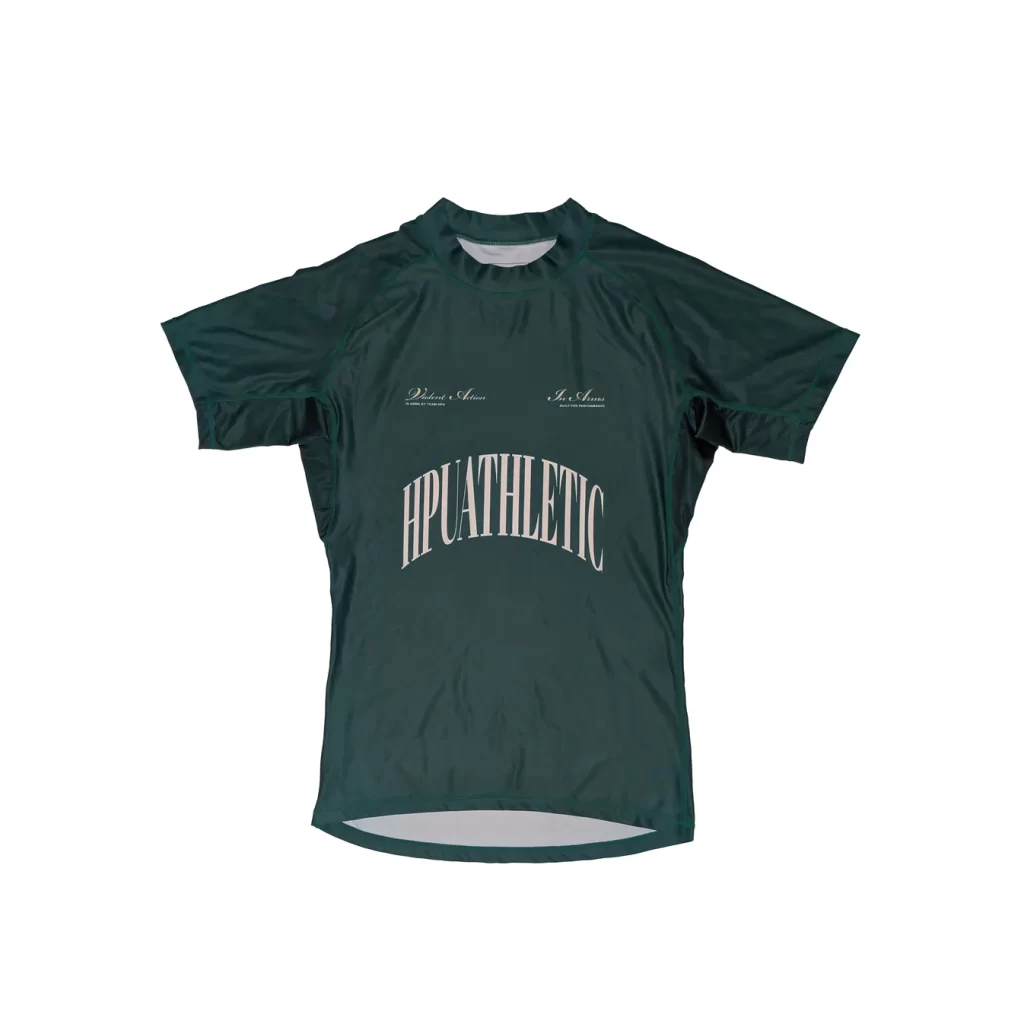
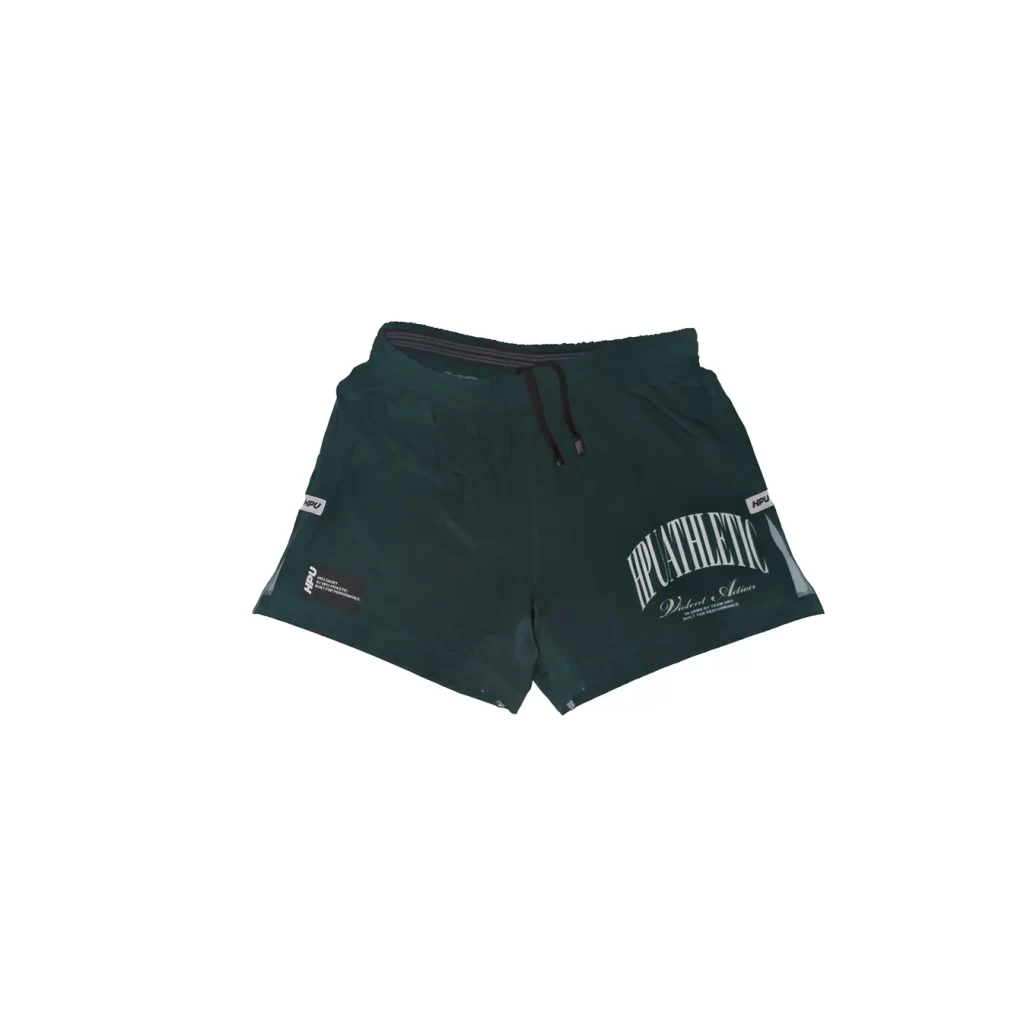
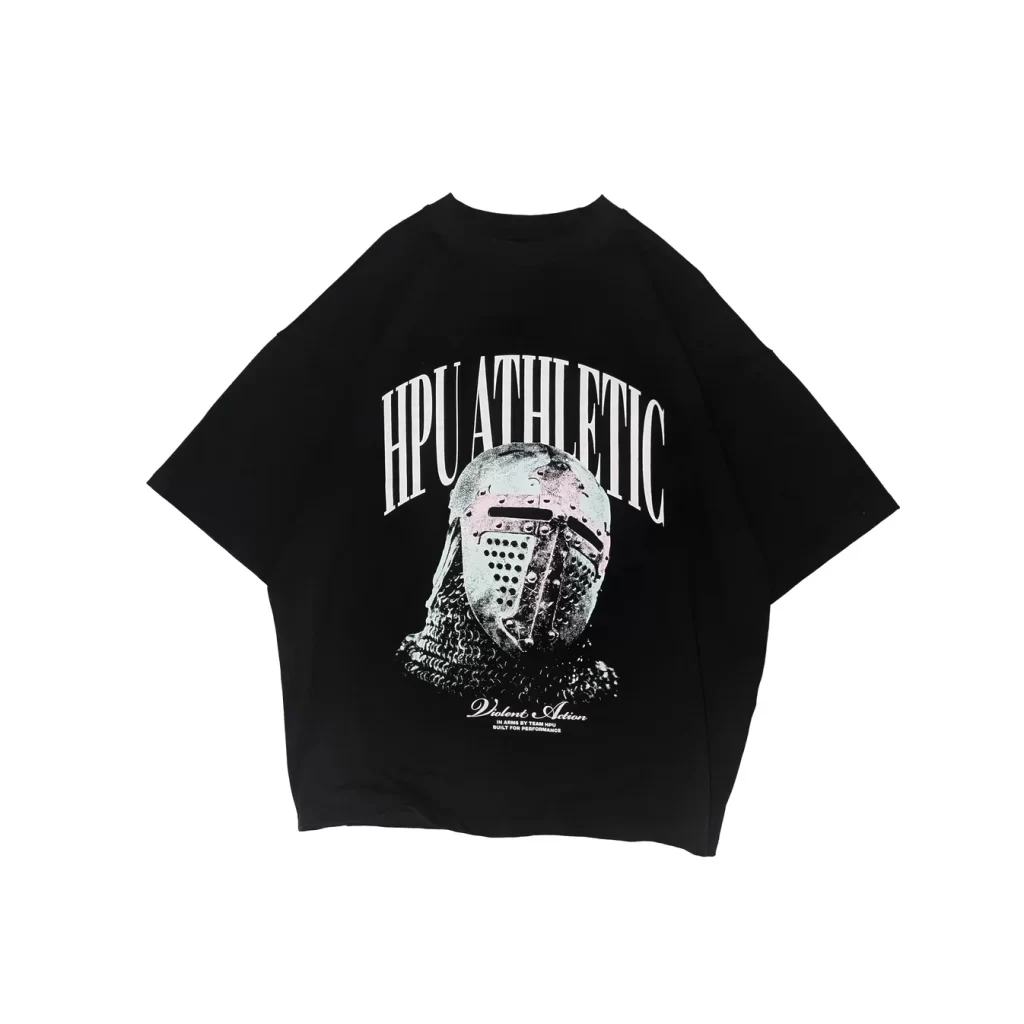
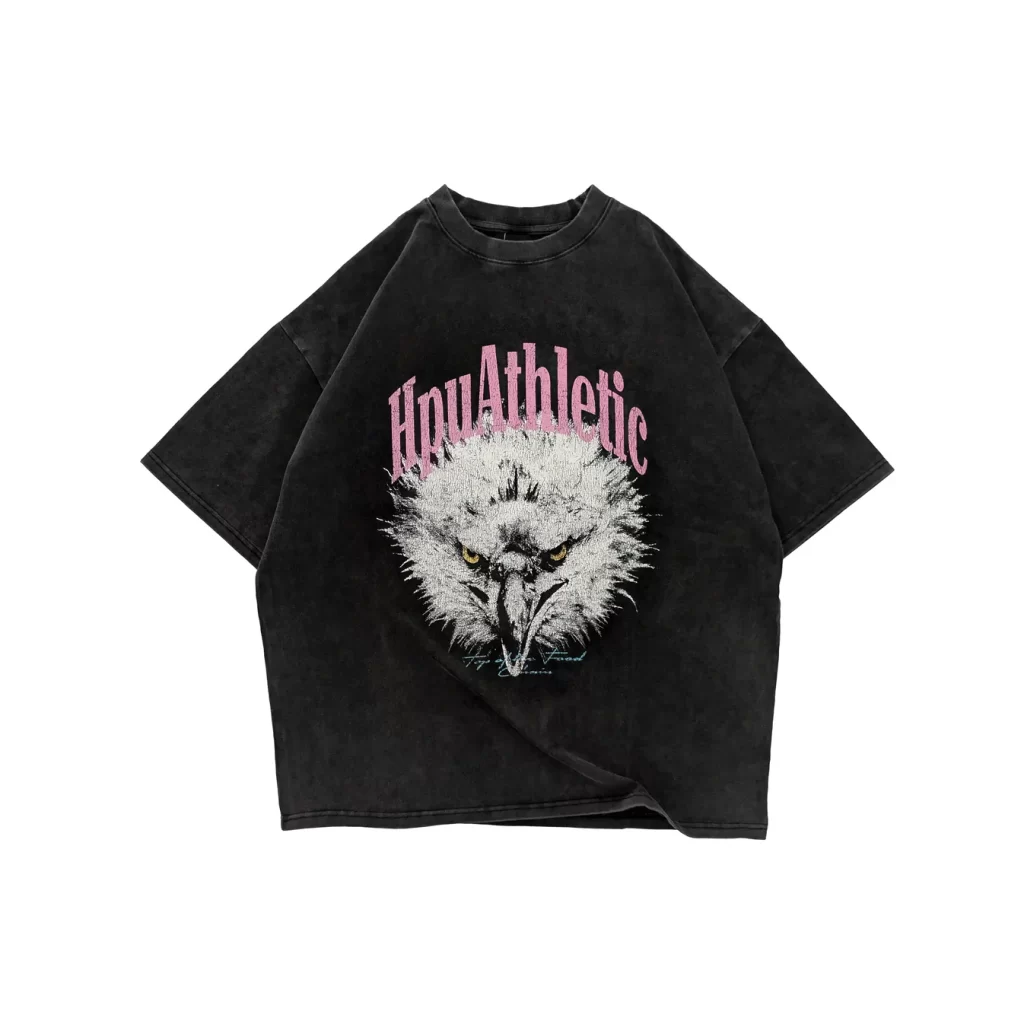
B-Team: Irreverent Apparel from BJJ’s Most Entertaining Gym
The B-Team has quickly become perhaps the most popular gym in modern Jiu-Jitsu. Based in Austin, Texas, and founded by Craig Jones, Nicky Rodriguez, Nicky Ryan, and Ethan Crelinsten, the gym has built a massive following through their entertaining vlogs and competition documentaries.
While many B-Team athletes maintain individual sponsorship deals, the gym itself produces merchandise that reflects their irreverent culture. Available at bteamjj.shop, much of their apparel line features satirical designs that embody Craig Jones’ notorious sense of humor and trolling persona.
As they’ve mentioned in their videos, fans need to act quickly when B-Team releases new gear. Many of their designs push the boundaries of copyright law, and production runs can be abruptly halted by cease and desist letters—which has become almost a badge of honor for the brand.
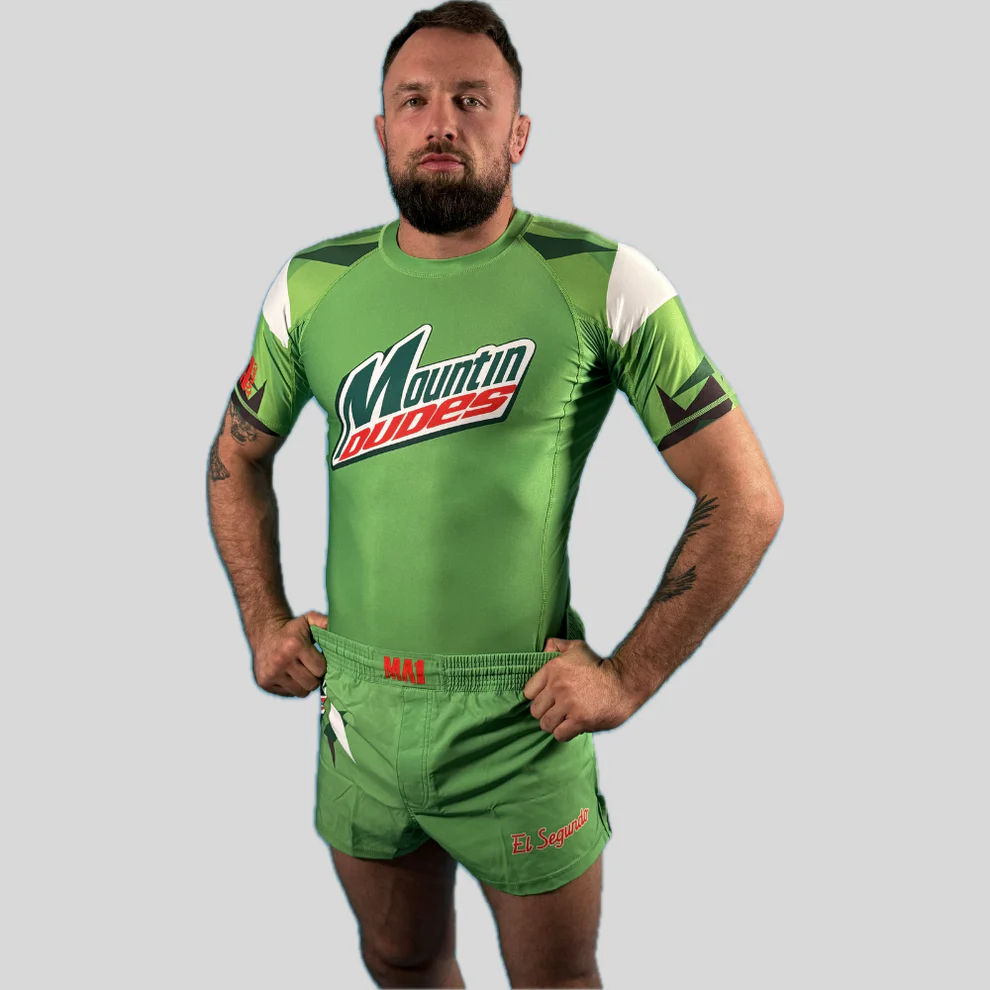
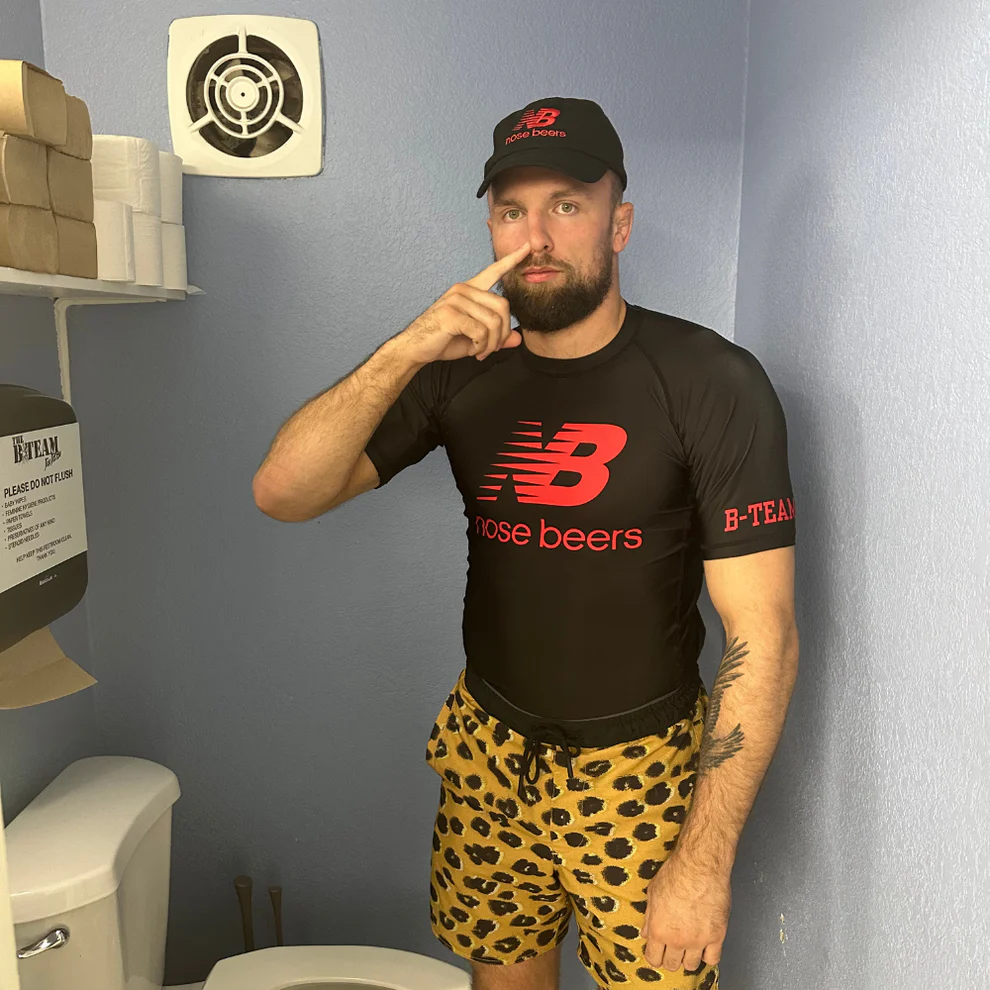
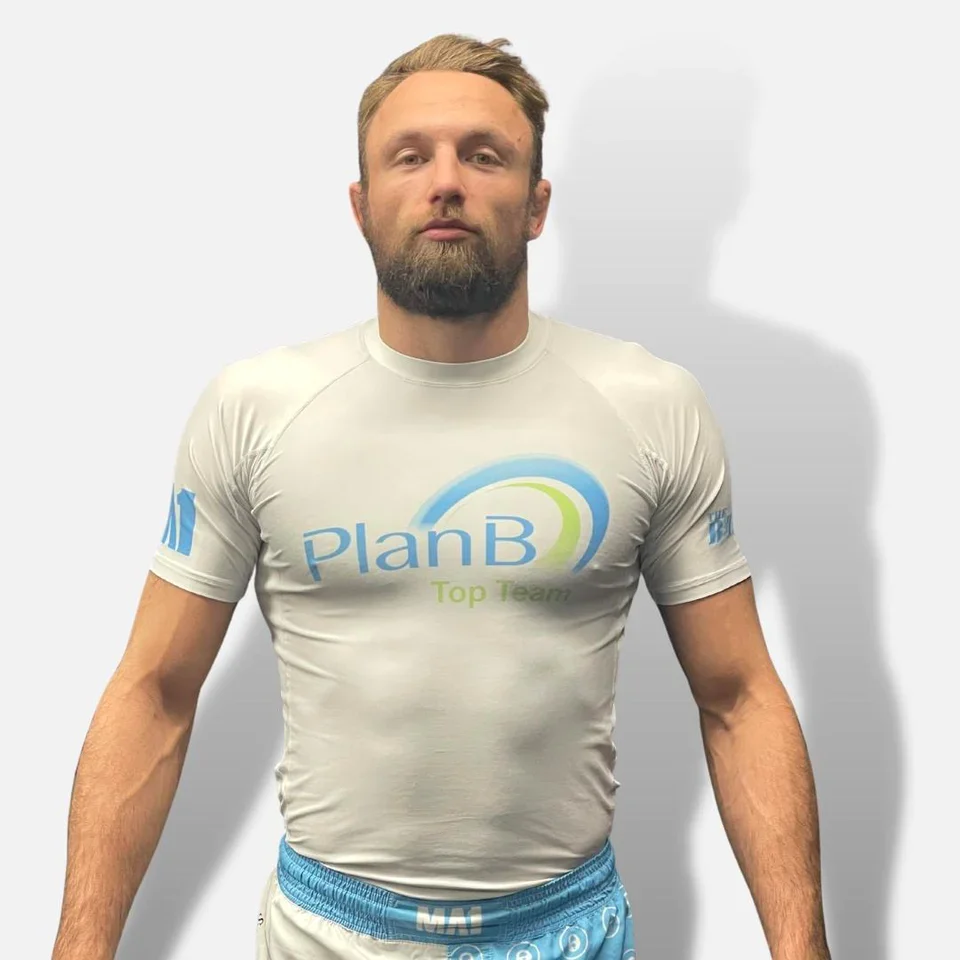
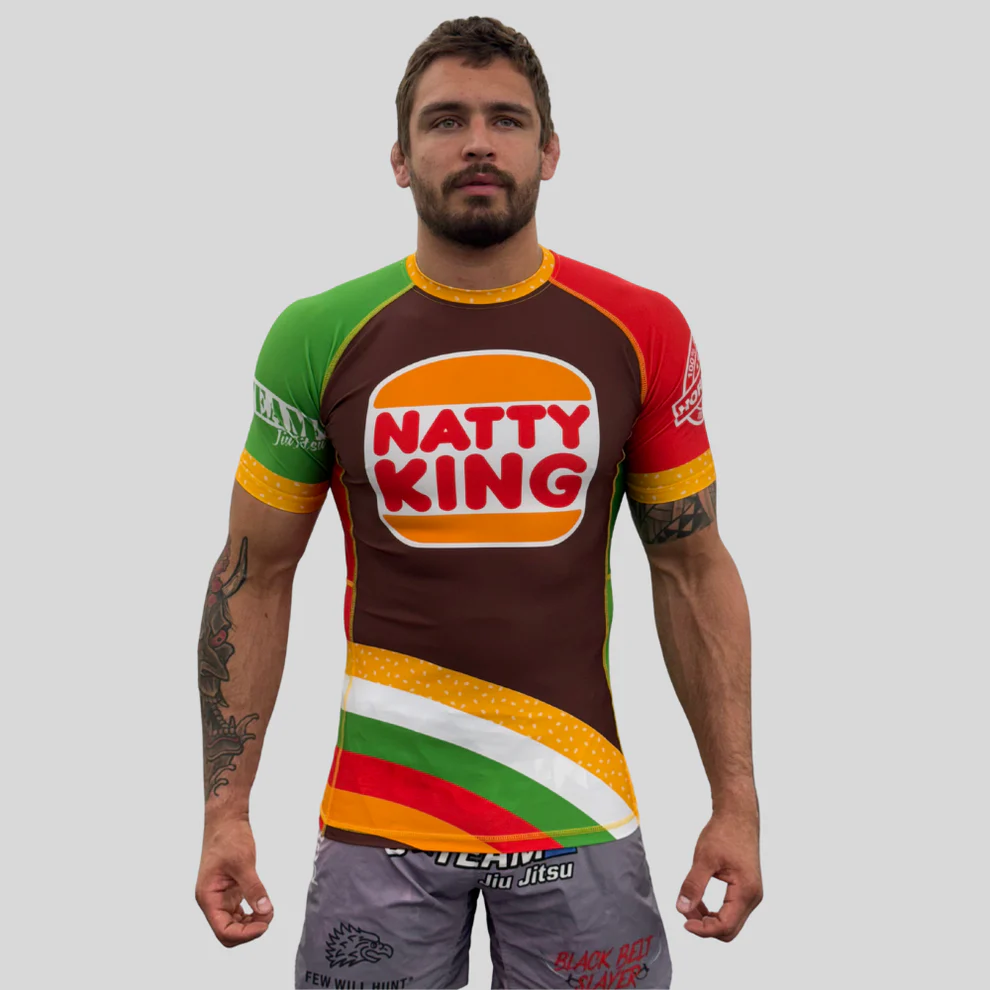
Xanadu Paradise: Levi Jones-Leary’s Minimalist Approach
Australian BJJ standout Levi Jones-Leary, who trains under Lachlan Giles and goes by the Instagram handle @xanadugod, represents the cutting edge of this athlete-brand movement. Recently, he’s been competing in distinctive rash guards from a mysterious brand, including during his impressive silver medal performance at the Craig Jones Invitational, where he narrowly lost to Kade Ruotolo.
Further investigation reveals Jones-Leary is developing his own clothing line called Xanadu Paradise, with the compelling slogan “do difficult things easily.” While the brand’s website (xanaduparadise.com) remains password-protected, there’s significant demand on his Instagram for new product releases.
What sets Xanadu Paradise apart is its departure from traditional BJJ aesthetics. Instead of the loud graphics and vibrant colors that dominate the market, Jones-Leary has embraced minimalism with small, elegant designs reminiscent of fine-line tattoos depicting natural elements like suns and moons.




The Future of BJJ Brand Ownership
This shift toward athlete-owned brands represents a democratization of the BJJ apparel industry. It allows competitors to express their unique styles and personalities while building sustainable businesses beyond their competition careers.
For consumers, this trend provides more diverse options and a more direct connection to the athletes they admire. Rather than wearing generic branded gear, practitioners can now train in apparel that represents a specific athlete’s vision and journey.
As manufacturing continues to become more accessible and social media platforms allow athletes to market directly to their followers, we can expect this trend to accelerate. The future of BJJ apparel likely belongs to the athletes themselves—those who put their bodies on the line in competition and have earned the right to control how their image and influence are monetized.
Whether you’re drawn to Josh Saunders’ streetwear aesthetics, B-Team’s irreverent humor, or Levi Jones-Leary’s minimalist approach, supporting athlete-owned brands represents a new way to connect with the sport’s top talents while helping them build sustainable careers beyond the competition mat.
